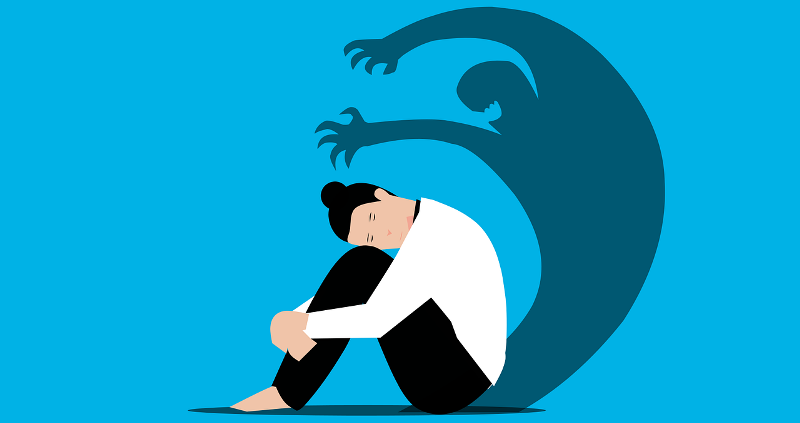You may have strong mental health but that doesn’t mean you will never face emotional issues. While this is a normal part of a person’s life, it is important to have the ability to deal with these setbacks and bounce back from adversity.
So, irrespective of whether you are coping with a special mental health issue or just want to be more resilient, these eight life-changing ways will show you how to take control of your mental health and improve it, starting right now.
Table of Contents
1.Make face-to-face contact a priority
All human beings are social creatures, not meant to thrive in isolation but to live with relationships and connections with others. While one way to foster companionship is through social media and phone, nothing can uplift the mood more than a face-to-face interaction with other people.
Reaching out to a good listener is not a sign of weakness, but a necessity to make you function and feel good always. You can try by exchanging a greeting with an acquaintance, neighbour or even someone who serves you coffee every day in the office. You never know how good making a connection will lead to.
2.Stay active
Since the mind and body are linked intrinsically, it is important to improve physical health to get a good feeling of mental and emotional welfare. Staying active releases powerful chemicals like endorphins, which supplement the energy to the body.
Fortunately, you don’t have to be a fitness freak to enjoy these benefits, as taking around in a park, playing with the kids or cycling to work will make a big difference to improving your mental and emotional health.
3. Keep stress levels in check.
Stress, as everyone knows, can take a heavy toll of a person’s mental and emotional health. While stress is an unavoidable part of life, there are strategies in place to control stress and attain a semblance of normalcy.
Relating your problems to someone is a sure-fire way to put the brakes on damaging stress levels. Alternately, you can do things like squeezing a stress ball or listening to an uplifting tune, anything which may appeal to your senses. The sooner you discover the right sensory input, the quicker you will be able to calm yourself, no matter what the situation.
4. Switch to a wholesome diet
How much you eat, what you eat and what you don’t eat can have an effect on how you think and feel. An unhealthy diet can lead to poor sleep resulting in impacting the brain and weakening the immune system.
By sticking to a diet, low in sugar and high in healthy fats, the added energy will instantly lift your mood and make you look and feel at your best all the time. So, start now by cutting out the bad fats and including unsaturated fats and omega-3 to support brain health.
5. Chat and Talk therapy
Despite the many health care reforms in place, most people don’t have medical benefits which makes it them difficult to access mental therapy. Luckily, telehealth is available for those individuals who are without resources to get the support they need to address their mental health issues.
Online therapy sites allow a person to attend therapy sessions through a chat room, webcam or text with a licensed professional from the privacy of your home. Also, when it comes to seeking help from an online therapy service, convenience and 24×7 chat feature is the key. Sharing a problem is often the first step towards recovery. You can take up mental health services without having a second thoughts.
6. Ensure quality sleep
Cutting back on sleep, especially if you are leading a busy life, is not a smart move as it will adversely affect your mood, energy and levels of mental sharpness. Additionally, over a long period of time it may start affecting the brain and wreak havoc on your overall health and outlook.
While one should aim for eight or nine hours of sleep a day, to attain this becomes difficult as not everyone can drift off to sleep on hitting the bed. Your brain requires a bit of time to unwind, so switch off the phone, TV or computer, at least two hours before bedtime and postpone everything for the next day. Sometimes the world can wait.
7.Take help when needed
Seeking professional help or talking with a loved one, should be regarded as a sign of strength and not a weakness. People who have opted for appropriate treatment have been able to recover from addiction and other mental health issues and lead a fruitful and rewarding life.
There are many programs and resources that can be availed of. When in urgent need you can contact the Mental Health of America in the US or The Samaritans in the UK. You may also join a support group to help you make the required changes or seek help from a General Practitioner for making a fresh start.
8.Try different things
A few minutes in a day can be enough to reduce stress, so try changing the scene or your pace to achieve good mental health. This doesn’t mean you pack your bag and head off the beaten path. It could be taking a thirty minutes break for lunch while at work, cleaning the kitchen or spending a day exploring something new.
In fact, instead of being active on a break, try doing nothing at all. Yoga, meditation or simply putting your feet up on the chair will do the trick. Journaling, or writing down your feelings on a piece of paper can help clear the mind and thoughts, thereby making you feel better. Even engaging in an activity to promote laughing, can elevate the way you feel.
9. Reducing Stress is Essential to Keeping a Healthy Life
It is very important to take care of your mental well-being in order to get the most out of life. Making simple changes to your way of life need not cost a fortune or take up hours of time if you just follow the eight practical ways described above to look after your mental health.






